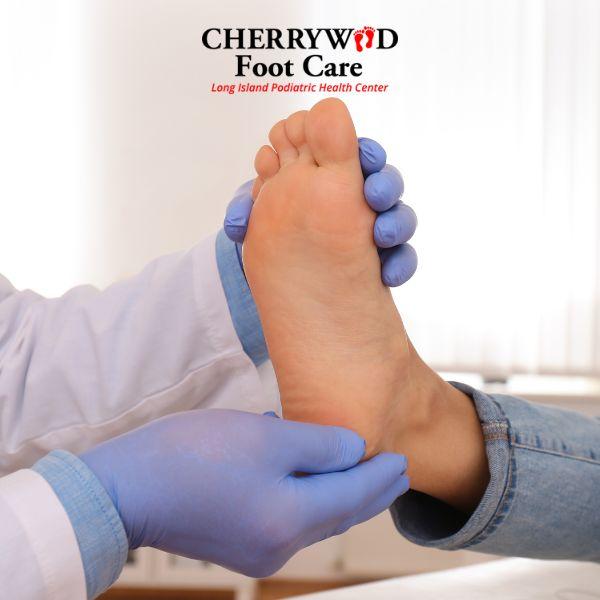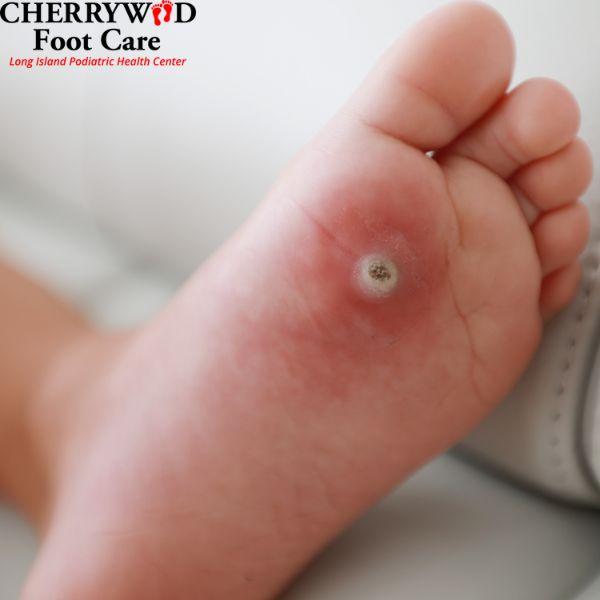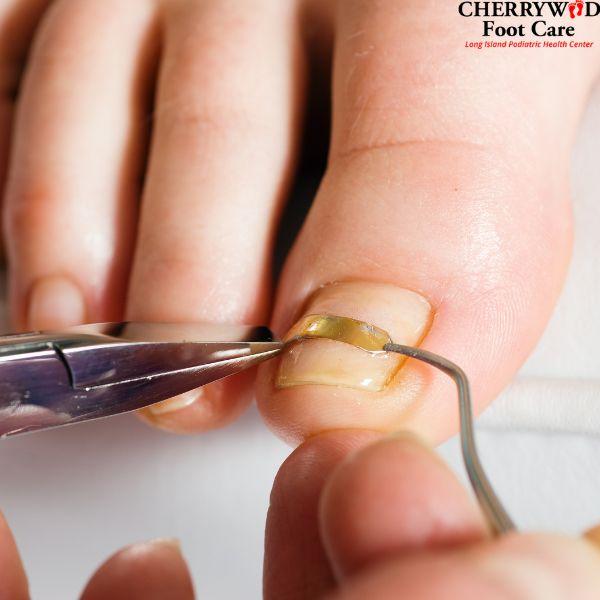Podiatrist in Massapequa – Neuroma Treatment
Are you experiencing pain while going through your daily routine? Is the pain coming from your toes? Well, you might be suffering from a neuroma. A neuroma could also be referred to as a pinched nerve, or even a nerve tumor. They are benign growths of nerve tissue, that most commonly act up while you’re walking. You could experience a burning sensation, tingling, or even numbness between your toes while doing daily activities. Most people suffering from a neuroma find relief when they take a break, remove their shoes, or even rub the area that’s giving them pain. While that seems like a simple fix, it can get repetitive to continue disrupting your routine like this. So why not visit a podiatrist in Massapequa to get rid of this problem completely? At Cherrywood Foot Care, Dr. Joseph Burke and his team of doctors are equipped to treat your neuroma with the most up-to-date and cutting-edge technology available.
Causes
So you may be wondering, how did I get this neuroma? While doctors haven’t exactly pinned down the direct cause yet, there are a few explanations as to why you may be in pain. To start, anything causing irritation to the nerve, or even constricting it, can cause the start of a neuroma. Meaning, wearing proper footwear is extremely important if you’re looking to prevent this. Aside from wearing the wrong shoes, these are a few other causes of neuromas:
- Repeated stress on the area
- Trauma causing inflammation or swelling in the toes
- Suffering from high-arched feet or flat foot
- Bunions
- Hammertoes
Symptoms
If you’re suffering from a neuroma, the symptoms may not seem so bad at first. They start to creep up on you slowly. You may feel some irritation or pain every once in a while at first, but as time passes it’ll become more often. Rather than finding temporary solutions to relieve your pain though, you may want to visit a podiatrist in Massapequa if you’re experiencing any of the following:
- Tingling
- Burning sensations
- Numbness
- Feeling like something in your shoe and/or sock is “bunched up”
- Pain between your toes
- Most commonly between the third and fourth
- Swelling between the toes
- Having pain in the ball of your foot when putting weight and/or pressure on it.
How can a podiatrist in Massapequa treat my neuromas?
After enlisting the help of a doctor, there are a few treatment options available. A podiatrist will decide which treatment is best depending on the severity of your symptoms. More often than not, they will suggest a non-invasive treatment. Those options include:
- Padding and taping to change any abnormal foot functions that could be causing the neuroma.
- Anti-inflammatory medications
- Orthotics, which are custom designed shoe inserts to help reduce some of your symptoms
If you’re still experiencing pain after trying these solutions, a surgical option may be the next step. Based on your pain, a podiatrist may suggest:
- Cortisone injections
- Decompression surgery
- Removal of the nerve causing the neuroma
 HERE IS A SAMPLING OF THE MANY FOOT-RELATED AILMENTS, CONDITIONS AND DEFORMITIES CHERRYWOOD FOOT CARE’S TEAM OF HIGHLY TRAINED PROFESSIONAL FOOT EXPERTS TREAT:
HERE IS A SAMPLING OF THE MANY FOOT-RELATED AILMENTS, CONDITIONS AND DEFORMITIES CHERRYWOOD FOOT CARE’S TEAM OF HIGHLY TRAINED PROFESSIONAL FOOT EXPERTS TREAT:


 What is a plantar wart?
What is a plantar wart? What do I do about my ingrown toenail?
What do I do about my ingrown toenail?